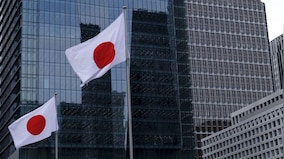A group working under the U.N. Human Rights Council has issued a wide-ranging report about rights in Japan, including discrimination against minorities and unhealthy working conditions.
The report, issued this week in Geneva, recommended various changes in Japan, such as more training in businesses to raise awareness of rights issues, setting up mechanisms to hear grievances, enhancing diversity and strengthening checks on labor conditions, as well as sanctions on human rights violations.
The U.N. Working Group on Business and Human Rights, which visited Japan last year, is made up of independent human rights experts who work under a mandate from the council, but they don’t speak for it.
Their report listed as problem areas the gender wage gap and discrimination against the Ainu indigenous group, LGBTQ and people with disabilities, noting a long list of people it considered “at risk.”
“The crux of the challenges faced by at-risk stakeholder groups is the lack of diversity and inclusion in the labor market, on the one hand, and the prevalence of discrimination, harassment and violence in the workplace and society at large on the other,” it said.
The report called “abhorrent” the working conditions of foreigners and migrants and voiced concern about cancer cases among people working at the Fukushima nuclear plant that suffered meltdowns in 2011.
The report also said protection of whistleblowers in Japan and access to the judicial process need to be improved.
Among the issues raised in the report was alleged sexual abuse at the Japanese entertainment company formerly known as Johnny and Associates.
Dozens of men have come forward alleging they were sexually abused as children and teens by Johnny Kitagawa, who headed Johnny’s, as the company is known, while they were working as actors and singers decades ago.
Kitagawa was never charged and died in 2019. The head of Johnny’s issued a public apology in May last year. The company has not yet responded to the report.
The report said the monetary compensation that the company, now renamed Smile-Up, paid to 201 people was not enough.
“This is still a long way from meeting the needs of the victims who have requested timely remediation, including those whose compensation claims are under appeal,” the report said.
It also urged Smile-Up to offer mental health care and provide lawyers and clinical psychologists for free.
Junya Hiramoto, one of those who have come forward, welcomed the report as a first step.
“The abuse is not past us. It is with us now and will remain with us,” he said on Wednesday.







)
)
)
)